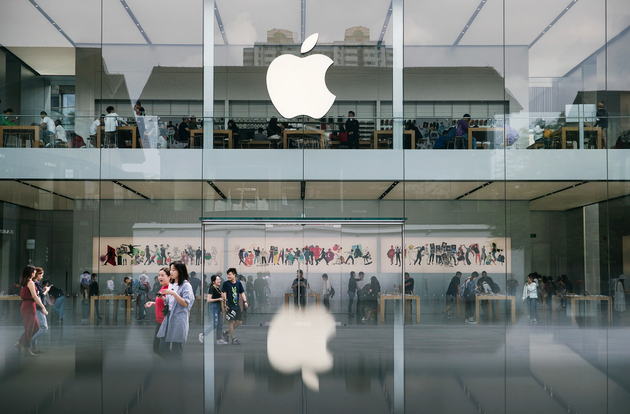
Photo/Zhang Jian
Dec. 11 (NBD) -- The legal battle between Apple and its chip supplier, Qualcomm, reached a new level on Monday when Qualcomm announced that it had been granted injunctions against Apple.
The Fuzhou Intermediate People's Court in China has granted the chip giant's request for two preliminary injunctions against four Chinese subsidiaries of Apple, ordering them to immediately cease infringing upon two Qualcomm patents through the unlicensed importation, sale and offers for sale in China of the iPhone 6S, iPhone 6S Plus, iPhone 7, iPhone 7 Plus, iPhone 8, iPhone 8 Plus and iPhone X, according to the announcement of Qualcomm.
The patents in question concern the way Apple adjusts and reformats images in iOS and how the operating system handles switching between various touchscreen apps.
"We deeply value our relationships with customers, rarely resorting to the courts for assistance, but we also have an abiding belief in the need to protect intellectual property rights," said Don Rosenberg, executive vice president and general counsel at Qualcomm. "Apple continues to benefit from our intellectual property while refusing to compensate us. These Court orders are further confirmation of the strength of Qualcomm's vast patent portfolio."
On the same day, Apple filed a request with the court to overturn the injunctions and released a statement saying, "Qualcomm's effort to ban our products is another desperate move by a company whose illegal practices are under investigation by regulators around the world."
The statement also claimed that Qualcomm is asserting three patents it had never raised before, including one which has already been invalidated, and Apple will pursue legal options through the courts.
When contacted for comments, sources at Apple told NBD that all iPhone models will stay available for Chinese consumers.
As Lin Wei, senior partner of Beijing-based Dare & Sure Law Firm, explained to news outlet Yicai, once the iPhone sales ban takes effect, it will be enforced. Given these are preliminary injunctions, Apple can file with the court for "reconsideration" once. But unlike what's with an appeal, the conclusion of reconsideration usually comes out quickly and is rarely modified, Lin noted.
Once the sales ban is in effect, Apple will no longer be able to ship the above-mentioned models. But the injunctions will only affect Apple, excluding dealers whose iPhone products have already entered the market, Lin added.
Prior to the injunctions, Qualcomm filed with a U.S. court to ban the sale of related iPhone products in the U.S.
Ever since 2015, the two tech behemoths have been fighting against each other due to the iPhone maker's unwillingness to pay Qualcomm royalties it deems unfair. Apple sued Qualcomm in different countries and regions, disputing the chip maker's right to charge excessive royalties for its technologies.
Email: gaohan@nbd.com.cn


 川公网安备 51019002001991号
川公网安备 51019002001991号





